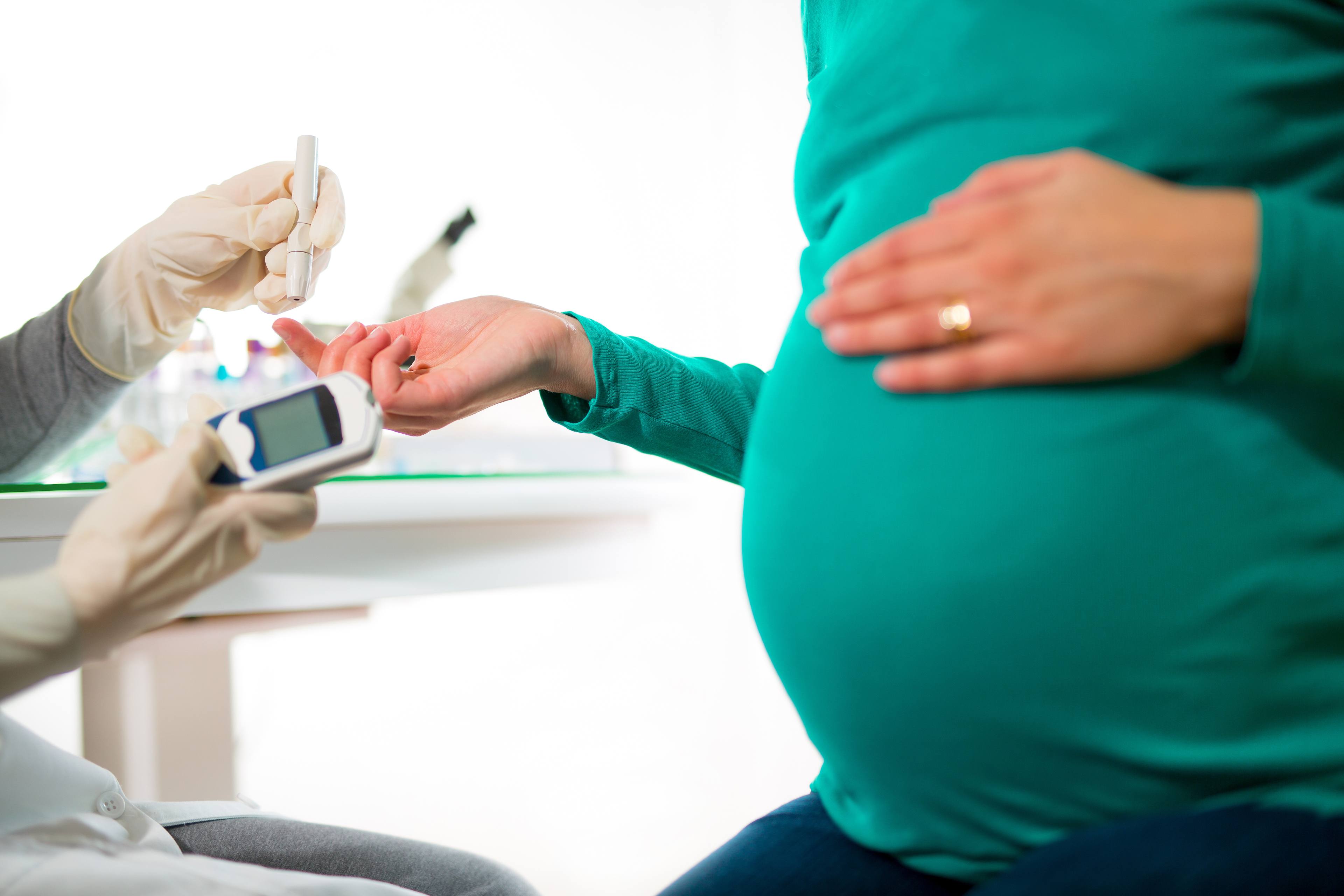
BGSU-led research collaboration bridges healthcare gaps for local gestational diabetes patients
Estimated Reading Time:
Pilot project led by Dr. Kerri Knippen partners with Mercy Health St. Vincent Medical Center in Toledo to address issues in treating gestational diabetes patients after delivery
For the majority of women who develop gestational diabetes mellitus (GDM), an increase in blood sugar levels during pregnancy, their glucose levels will return to normal after delivery.
Healthcare for these patients, however, is not as simple as waiting out the pregnancy – and a pilot project led by a Bowling Green State University faculty member aimed to study ways in which patients might be better served.
Dr. Kerri Knippen, an associate professor in the Food and Nutrition Program at BGSU, collaborated with the diabetes education services team at Mercy Health St. Vincent Medical Center in Toledo for a pilot project that saw promising returns, highlighting the University's commitment to creating meaningful partnerships through research.
Gestational diabetes is often like a check engine light for future care: Nearly a third of women who develop GDM while pregnant maintain high blood sugar levels after delivery, while all GDM patients are at increased risk of cardiovascular disease, heart attack and stroke.
Crucially, patients with GDM during pregnancy are 10 times more likely than the general population to develop Type 2 diabetes.
“They have a lifelong, linear risk for cardio-metabolic concerns,” Knippen said. “As a dietitian, we would see these individuals during the pregnancy period with a very limited timeframe where you can help control their blood sugar.
"My interest was in learning how to bridge the gap from the pregnancy to the postpartum period knowing that there is a lifelong risk.”
Though the condition underscores potential issues after delivery, gestational diabetes patients sometimes fall through the cracks when it comes to healthcare. Some GDM patients see maternal fetal medicine providers or an endocrinologist during pregnancy, but may fall off those caseloads after giving birth.
Ideally, a GDM patient will return to their OBGYN to be retested after delivery – but Knippen said approximately half of women do not return for postpartum visits.
Additionally, some patients who do return are not tested with an oral glucose tolerance test – the preferred postpartum method – and the issue is often compounded when the postpartum period is finished and the patient does not have primary care.
Funded by a grant from the Association of Diabetes Care and Education Specialists (ADCES) Foundation, Knippen’s pilot project aimed to fill healthcare gaps by implementing a postpartum care planning intervention that expanded the role of the diabetes care and education specialist.
As part of the pilot, researchers created education and decision-aid tools for both the patient and the diabetes care team.
“We want the patient to feel empowered, but at the same time, we want to take the burden off the patient,” Knippen said. “We really wanted to see shared decision making, which is why we developed tools for both the clinician and the patient.”
Knippen developed a desk reference for the hospital's diabetes care team which included open-ended prompts for counseling sessions based on clinical guidelines that helped foster shared decision-making around the postpartum care plan.
“The post-partum period can be a busy and challenging time during which the healthcare needs of the new parent can easily be crowded out,” said Brenda Bal, a registered nurse and certified diabetes care and education specialist at St. Vincent Medical Center.
“Utilizing the care plan not only brings awareness to the risk of Type 2 diabetes after gestational diabetes but also supports purposeful goal setting to lower the risk.”
By collaborating with internal and external stakeholders, Knippen also developed a patient community guide that included information about how a patient can connect to primary care or social programs to help close the gap between care plan goals and potential barriers.
“As we set out to do this work, we chose to use implementation science to help operationalize the intervention into practice," Knippen said. "This approach helped the team work through challenges and permitted change. The bi-directional partnership between the academic institution and the health system was important to keeping the work moving forward.”
Through the project, the diabetes care team adapted their workflow for gestational diabetes and put into practice a new electronic medical records template, an after-visit summary for labor and delivery and implemented a letter to communicate with the patient’s OBGYN.
The results showed patients responded to the changes.
Among the sample, 100% of patients rated their encounters with the diabetes care team as helpful, 90% of patients said they had enough time with the diabetes care team and 100% said they trusted the diabetes care team.
“We believe this project reflects Mercy Health’s commitment to improving the health of vulnerable populations and dedication to excellence in advancing care in our community and across the country," said Virginia Wagner, a registered dietitian and clinical coordinator of diabetes education services at Mercy Health St. Vincent.
The diabetes care team’s work was recognized by their leadership and recently was highlighted as part of the Distinguished Poster Showcase at the ADCES24 national conference in New Orleans.
Though the St. Vincent diabetes care team was asked to implement several new procedures, Knippen said their enthusiasm and the patient response showed the pilot has promise for better treating GDM in the future.
“We asked a lot of the diabetes care team, but they rose to it,” Knippen said. “The diabetes team’s confidence grew and they found job satisfaction because they saw the value of what they were doing, which was great to see.
“We saw promising steps and strategies that could be transferred to other settings or expanded within the system, so that was really positive to see how partnerships such as this can bring public good.”
Related Stories
Media Contact | Michael Bratton | mbratto@bgsu.edu | 419-372-6349
Updated: 07/21/2025 03:30PM




